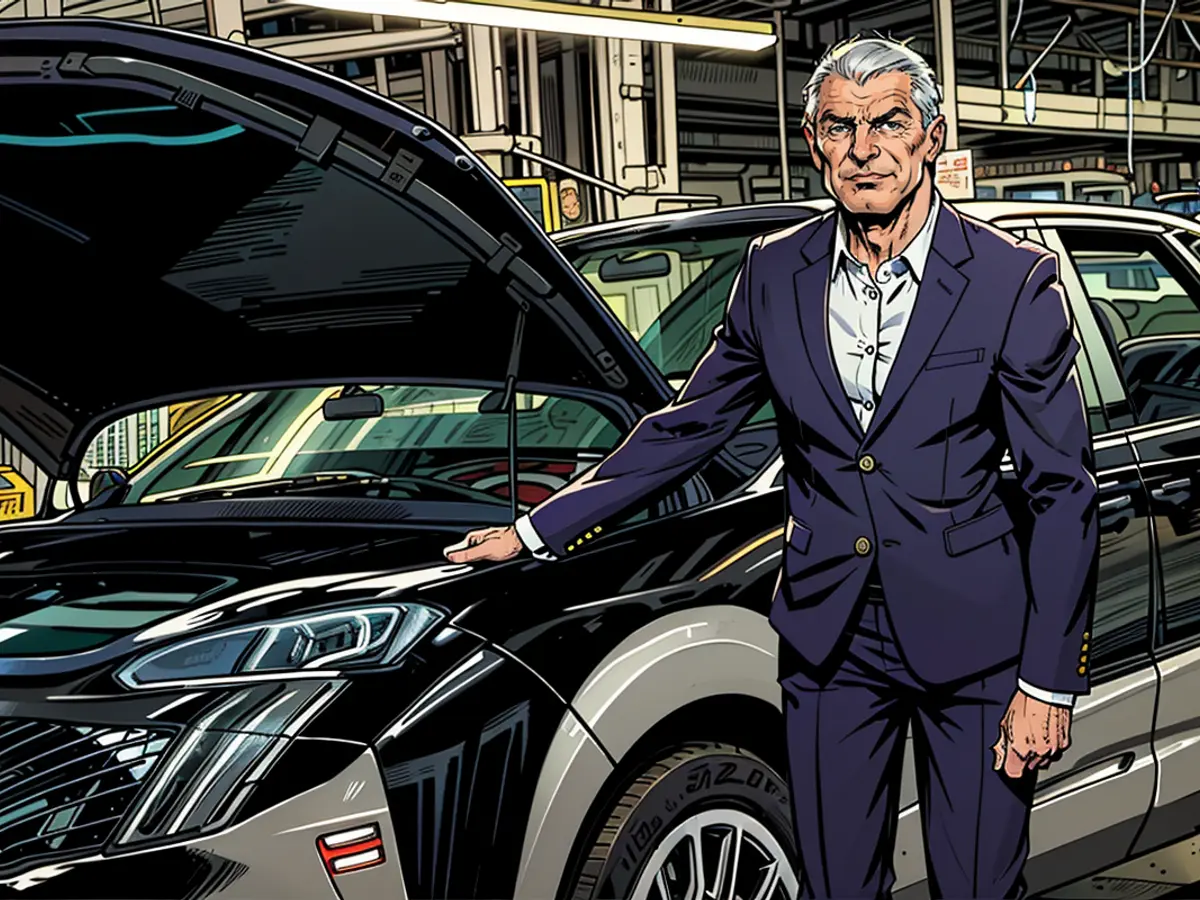Stellantis' CEO is set to step down in 2026, with the company encountering challenges in the North American market.
Revenue and earnings in the renowned profit sector of the Franco-Italian automaker have been decreasing, necessitating them to trim their 2024 profit prediction recently and hint at potential reductions to their dividend and share buybacks in the upcoming year.
Experts have adjusted the company's stock value, which has plummeted 42% this year following blunders in North America, a region where sales of renowned items like its Jeep and Ram trucks usually contribute a large portion of its profits.
The announcement of Tavares' retirement plans arrives a few weeks after Stellantis (STLA) mentioned its search for his successor, despite suggesting at the time that he might continue after his contract expires. The world's fourth-largest automaker in terms of sales now intends to designate his successor by the fourth quarter of 2025.
Stellantis appointed Doug Ostermann, the previous chief operating officer of its China division, as its finance officer, relieving Natalie Knight who is departing the company.
In addition to this, Antonio Filosa was appointed as Stellantis' North America chief operating officer apart from his role as Jeep brand CEO, replacing Carlos Zarlenga, whose future plans remain undisclosed.
Tavares, an ardent race car enthusiast who had been widely praised in the past for transforming Stellantis into one of the world's most profitable automakers, has led the company ever since its formation through a 2021 merger between Fiat-Chrysler and PSA, where he had served as board chair since 2014.
However, the company's expansive inventory and recent decline in profits have left industry analysts astounded following years of its impressive margins capturing the envy of competitors in Detroit and abroad.
"After disregarding investors' concerns about inventories and discounts in the US for most of the previous 12 months, the company lost considerable trust when they reduced their forecast in late September," Bernstein analysts stated in a note.
"Today's management reshuffle adds to a growing list of senior management changes (21 in the last 12 months) and is unlikely to reassure investors," they further added.
Stellantis reduced its forecast from anticipated positive cash flow to negative cash flow ranging between 5 billion and 10 billion euros ($5.5 billion and $10.9 billion) this year.
Tavares had once asserted that Stellantis' 14 brands, including Maserati, Fiat, Peugeot, and Jeep, were all valuable assets to the company's portfolio, but in July suggested underperforming brands might be eliminated to reduce costs.
He has come under severe criticism from the UAW union, dealers and shareholders in recent months. The substantial management overhaul was intended to tackle these issues, Tavares declared in a statement last Thursday.
"During this challenging period for the automotive industry, our responsibility and ethical obligation is to adapt and prepare ourselves for the future," he added.
Apart from these management adjustments, Stellantis is also reorganizing its structure by shifting the supply chain organization to the manufacturing division to offer more attention to enhancing performance among its suppliers.
The car manufacturer Stellantis, facing financial challenges, has mentioned potential cuts to dividends and share buybacks due to decreasing profits in the future. This situation has led some analysts to question the company's business strategies, especially considering its large inventories and recent decline in profits.








